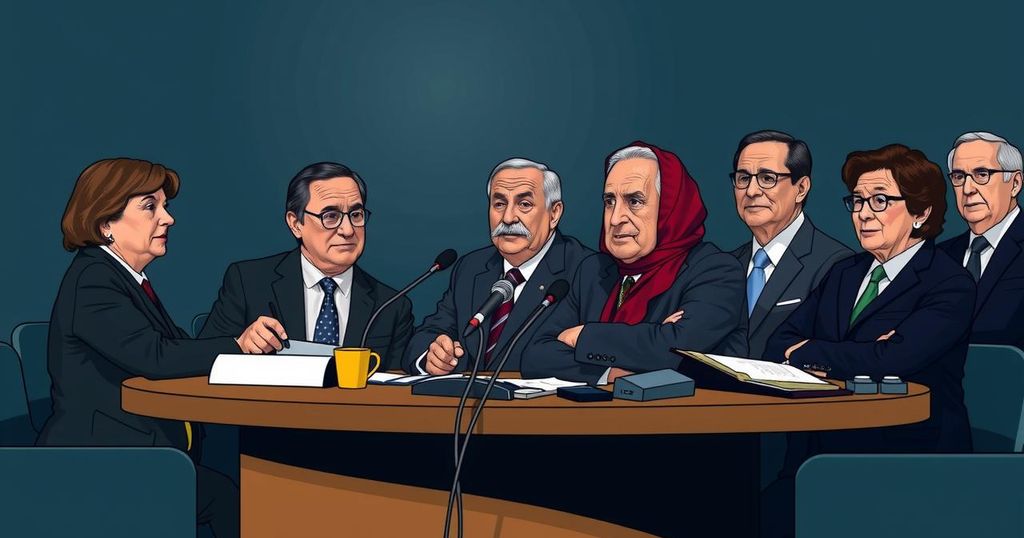World leaders convene at COP29 in Baku, Azerbaijan, with notable absences from the largest carbon emitters. This year’s conference lacks the star power of previous talks, raising concerns about political will and urgency for climate action. Key discussions will focus on climate financing for developing nations, despite the absence of influential leaders like those from the U.S., China, India, and Indonesia.
Leaders from around the world have gathered in Baku, Azerbaijan for the annual United Nations climate conference, COP29, but notable figures from some of the largest carbon-emitting nations are conspicuously absent. Unlike previous gatherings that featured prominent leaders akin to a major world sporting event, this year’s talks resemble a reserved chess championship where strategic discussions prevail without the typical star power. The leaders of crucial nations responsible for over 70% of the world’s carbon emissions, including the United States, China, India, and Indonesia, have not sent their top representatives. Climate scientist Bill Hare, CEO of Climate Analytics, commented on this absence, noting that it reflects a broader lack of political urgency regarding climate action: “It’s symptomatic of the lack of political will to act. There’s no sense of urgency.” Despite this, UN Secretary-General Antonio Guterres emphasized the urgent need for a clean energy transition and highlighted the advancements made since 2016 in clean technologies, asserting that “No group, no business, no government can stop” the clean energy revolution. During the conference, President Ilham Aliyev of Azerbaijan defended his country’s fossil fuel production against criticism, suggesting that the blame for resource exploitation should be distributed more evenly among nations, particularly those with substantial oil interests like the United States. He stressed the importance of a realistic approach to transitioning from fossil fuels while recognizing the need for environmental accountability. Among the speakers, Prime Minister Keir Starmer of the United Kingdom and President Recep Tayyip Erdogan of Turkey will headline discussions, alongside leaders from several climate-vulnerable small island nations and African countries. While the absence of high-profile leaders is noted, UN representatives assert that every nation is represented and engaged in deliberations. The major focus of negotiations revolves around substantial climate financing, with discussions centering on mobilizing funds to aid developing nations in their transition away from fossil fuels and in compensating for the impacts of climate change.
The United Nations climate conference, commonly referred to as COP29, represents a critical platform for global leaders to gather and address the pressing issue of climate change. This year, however, marks a significant departure from past meetings characterized by major attendance from heads of state from the largest economic powers and carbon emitters. As the world confronts unprecedented climate challenges, ranging from record-breaking temperatures to devastating environmental disasters, the absence of influential leaders underscores a troubling trend of diminishing urgency and political will regarding meaningful climate action. Moreover, with numerous logistical conflicts, including concurrent G20 meetings in Brazil, many leaders are unable to attend. As discussions increase in magnitude and complexity, the consideration of significant climate financing remains at the forefront of the agenda.
The UN climate talks in Baku have highlighted a concerning dichotomy: while the scale of the climate challenge grows larger, the presence of pivotal leaders has diminished. Political engagement from the world’s major polluters is crucial for effective climate action, particularly in financing initiatives to assist developing nations. Nevertheless, the ambition to combat climate change and transition to clean energy remains crucial, as reaffirmed by UN leaders. The absence of major figures may affect the perceived urgency of negotiations; however, the conference is still significant for advancing dialogue and financing opportunities crucial for the future of global climate policy.
Original Source: www.voanews.com






